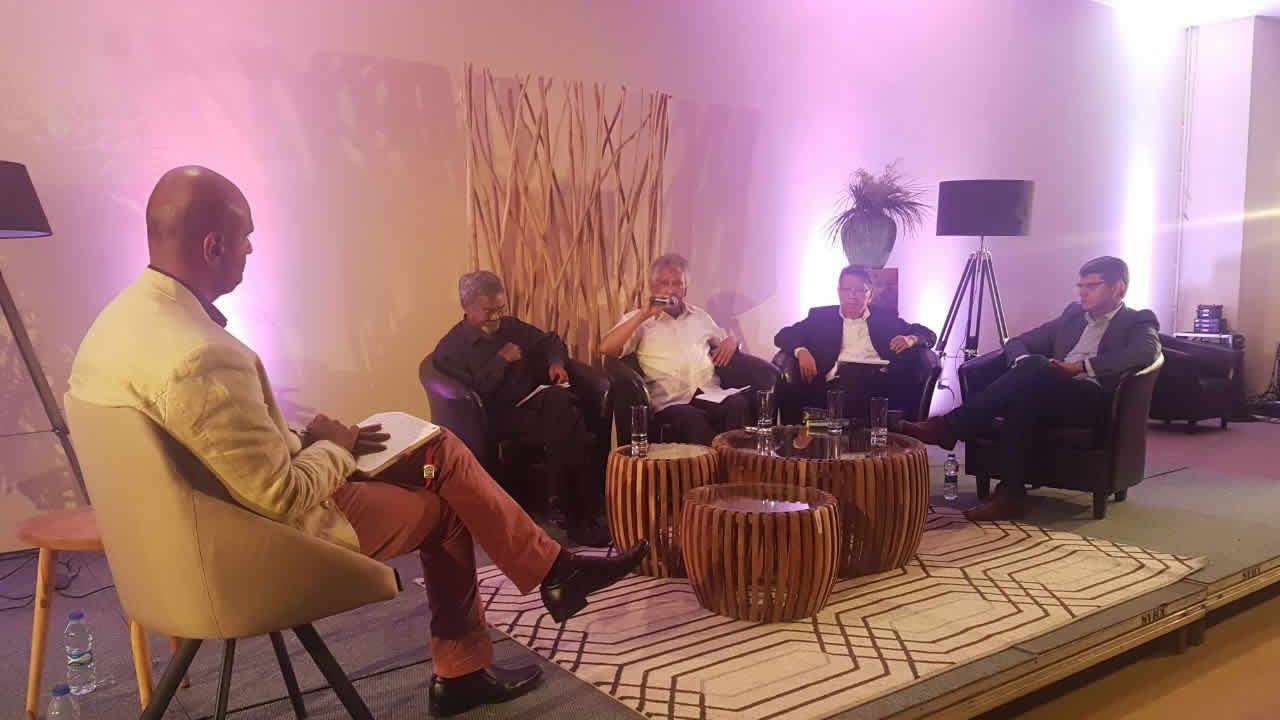
Perspectives: Towards a renewal of the economic model
The country must reorient itself in relation to its ambitions and take the necessary decisions. A change of mentality, an opening to promote intelligent immigration, encourage innovation and research, ignoring taboos, permanent restructuring of industrial pillars, perpetuating our environment. So many elements suggested by the panel of a forum-debate organized on Saturday March 3 at the Salon Moris Mo Pei, held by Events Plus, Radio Plus and the Défi Media Group. Around Nawaz Noorbux, of Radio Plus, the speakers were Georges Chung, adviser to the PMO, Amédée Darga, former minister and director of Straconsult, the economist Afsar Ebrahim and Malenn Oodiah, economic observer.
Beginning of the 1990s. The second phase of industrialization is set up with emphasis on the mechanization of manufacturing industries. The financial services sector is growing, with more interested use of the tax treaty with India. “Let us remember that since 1983, Mauritius has never known a year of recession. In recent years, economic growth has been between 3 and 4%, which is reasonable, even very good. The problem is that, on the other side, the population is stagnating. You cannot ask a company with a hundred employees to produce more. Without any change in human resources, we will continue the same growth of 3 to 4% in the years to come,” said Georges Chung.
According to Amédée Darga, the country's economic progress is palpable in view of the gross domestic product achieved per capita. It was Rs 1,222 in 1968, against Rs 354,000 today, with an average growth of 12%. Since 2015, this indicator has risen to 4.27%. To achieve Vision 2030, it will have to increase to 9 or 10% on average.
"Are we ready to make choices?"
“If we are to achieve Vision 2030, the University of Mauritius will need to reduce the number of political science students and increase the offers of engineering and science studies. It is time to review certain taboos, such as laboratory research on monkeys. Currently, these animals are exported to laboratories abroad. Why not attract these laboratories to Mauritius to create added value? Are we ready to make these choices? You have to know what our ambitions are and the decisions to be taken to achieve them,” insisted the former mayor of Curepipe.
The latter advocated the restructuring of the manufacturing, financial services, ICT, education sectors and more venture capital initiatives to support small and medium-sized enterprises (SMEs). “We left agriculture behind. Admittedly, we have a labor problem, but we must produce what we can sell, process, export with much more added value to encourage young people to take an interest in the sector. »
Smart immigration
Afsar Ebrahim shares the same opinion on the agricultural sector. He suggested opening our borders further to families from foreign countries who have the capacity to consume and invest in productive industries. “If we encourage 10,000 families who have the capacity to spend Rs 100,000 each on the local market, that would make a contribution of Rs 12 billion per year. We will have a more dynamic economy 24/7, because they will bring knowledge and investment and this will be beneficial to SMEs,” he said.
Referring to the impact of climate change, Malenn Oodiah felt that the economic model should adapt in the short and long terms. It must be sustainable and hinge on three axes: the creation of wealth, social equity and the environment. “We need a new development philosophy. We must agree on a model which meets the basic needs of the population, which inspires confidence in the future and which considers the consequences of the digital revolution on the labor market. We must choose which path to take and comply with sustainable, just and humane development,” he concluded.
The difficult years
“The first 15 years after Independence were the most difficult for Mauritians,” recalled Georges Chung. There was a total system change. Our economy was at its worst, based exclusively on the sugar industry. “We experienced only one moment of improvement, with the sugar boom in the years 74-75. The ton of sugar had then gone from £30 to £700 due to a shortage of sugar on the world market. »
However, he continued, much of these additional gains have not been invested wisely, despite the drive to diversify the economy. “With coffers practically empty, the State had to throw itself into the arms of the International Monetary Fund and the World Bank to meet the basic needs of the population. In October 1979, faced with a still precarious situation, the rupee was devalued by 30%, a necessary evil. A second depreciation of 20% will occur in 1981”, he recalled.
The real miracle occurred in 1983 with the decision of British Prime Minister Margaret Thatcher to agree to the attachment of Hong Kong to China. While Australia and New Zealand have found a windfall in attracting Hong Kong investors, Mauritius has also carried out prospecting missions to Hong Kong and France. This is how Hong Kong businessmen have massively invested in the free zone (textiles). Factories that have created tens of thousands of jobs. “The unemployment rate fell from 20% in the scorching years to less than 3% in five years. That was the real miracle, ”says the businessman.
Resources : defimedia.info